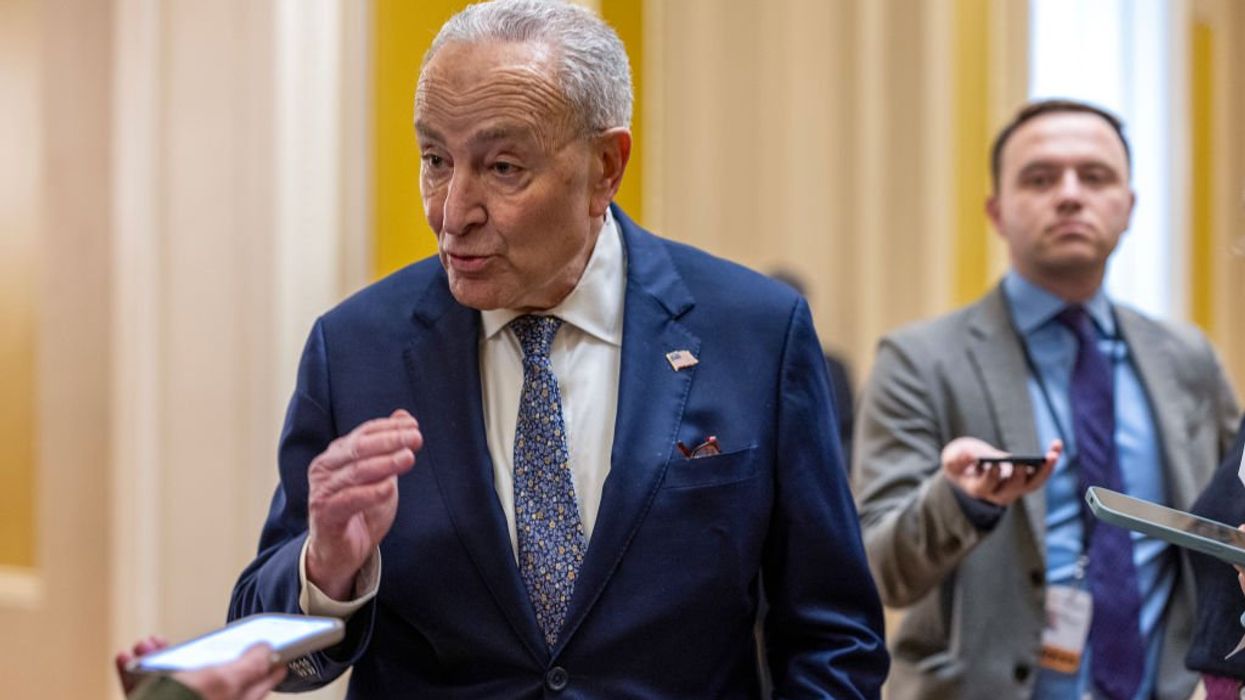On March 14, the GOP-led Senate passed a stopgap spending bill to keep the federal government running until September 30. The bill’s passage was made possible by Senate Minority Leader Chuck Schumer’s last-minute reversal—shifting from opposing the measure and advocating for a shorter extension to allowing the bill to advance. His decision was purely tactical: he feared Democrats would be blamed for a shutdown.
Schumer’s move provided the necessary votes to overcome procedural hurdles, effectively thwarting a Democratic filibuster. While Republican support for Trump’s budget was unsurprising, the Democratic leadership’s decision to go along was a stunning concession. It handed the Trump administration a significant victory while further eroding Congress’s budgetary authority, shifting more spending power to the executive branch.
Schumer attempted to justify his decision as preventing Trump from consolidating control during a shutdown. However, many within his party saw it as a capitulation that, ironically, granted Trump the unchecked power Democrats were trying to avoid.
The Stopgap Measure: What It Does and Doesn’t Do
Democrats initially opposed the bill because it lacked clear congressional directives on fund allocation. Republicans used a budget tool known as a continuing resolution (CR) instead of passing an appropriations bill. Unlike a traditional budget, which assigns specific funding to agencies and programs, the CR merely extends existing funding levels without dictating how those funds must be spent. It is the latter that is the cause for great concern.
This omission grants the Trump administration unprecedented control over federal spending, including the ability to cut funding for certain agencies or redirect money toward favored programs.
This is not just a technicality—it is a fundamental shift in power. The federal budget for fiscal year 2024-2025 was the result of detailed bipartisan negotiations, setting clear parameters for how agencies should spend taxpayer dollars. The CR removes these guardrails.
While agencies technically receive the same funding levels, the Trump administration now has the discretion to withhold, delay, or redirect funds at will. What should be Congress’s responsibility has been ceded to the president.
Beyond that, the CR merely delays critical fiscal decisions. Instead of resolving budget disputes, Congress has kicked the can down the road until September, setting up another round of political brinkmanship. Arguably, Schumer’s decision to allow the CR to go forward weakens the Democrats’ bargaining position for the next round.
The Risk for Future Budgets
While the short-term effects are bad, the long-term consequences are disastrous. This cycle of short-term fixes weakens the stability of government operations and hinders federal agencies from making long-term plans. Hiring freezes, delayed contracts, and deferred policy initiatives are now the norm.
In effect, Congress’ failure to act decisively strengthens Trump’s ability to reshape the federal government by default, reducing oversight, weakening regulatory agencies, and centralizing power within the executive branch.
If Congress continues using temporary spending patches instead of passing full appropriations bills, it risks permanently shifting control over the budget to the president.
Future presidents, regardless of party, will have a blueprint for bypassing congressional authority, using CRs to dictate spending priorities without congressional approval. This would fundamentally alter the balance of power in Washington and plainly violate the Constitution’s provisions that give Congress the power to make these decisions.
Agencies may start ignoring Congress altogether, looking instead to the White House for funding guidance. Legislative oversight will weaken, allowing the president to govern through discretionary spending rather than legislation. Constitutional checks and balances will erode, increasing the risk of an imperial presidency where executive power grows unchecked.
Congress Must Reassert Its Authority
The nation cannot afford Congress to be a passive player in the budget process. Lawmakers must pass detailed appropriations bills rather than rely on continuing resolutions.
They need to strengthen oversight of executive actions to prevent spending from being used as a political weapon. Bipartisan coalitions should be built to restore regular order in the budget process. This is not new; this is how things were done before the current Congress, right up to last year.
Members of Congress must also engage with the public to highlight the importance of congressional control over spending and the dangers of unchecked executive power. It is probably something of a stretch to expect Republicans to criticize Trump, but Democrats must do so.
While the latest CR prevented an immediate shutdown, it did so at the cost of congressional authority. By delaying real budget negotiations until September, Congress has set the stage for yet another fiscal crisis, one that Trump can exploit to further consolidate power.
If lawmakers fail to reclaim their role in the budget process, they risk permanently ceding their constitutional authority, allowing future presidents to reshape federal spending with little to no oversight.
The consequences of such a shift could fundamentally alter American democracy, turning budgetary control into a tool of executive power rather than a function of representative government.
Robert Cropf is a professor of political science at Saint Louis University.




















